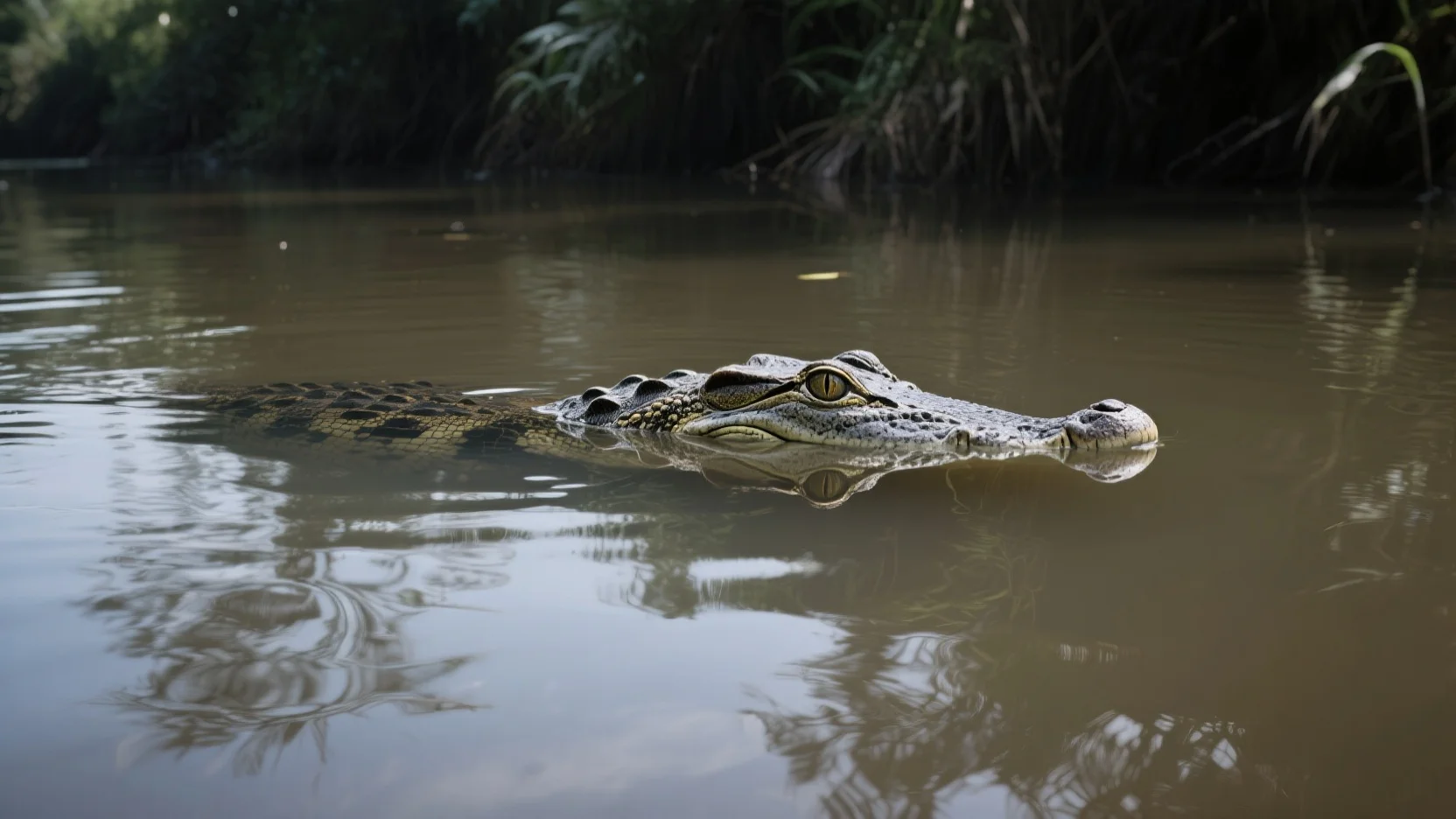In the animal kingdom, few creatures embody patience quite like the crocodile. These ancient reptiles, often seen lying motionless in the water or on riverbanks, are masters of stillness and waiting. Their hunting strategy, survival tactics, and behavior revolve around an extraordinary ability to remain calm, focused, and poised for the perfect moment. Observing crocodiles offers a fascinating glimpse into how patience can be a powerful tool—not just for survival in the wild, but also as a lesson for life itself.
Crocodiles are ambush predators, relying on stealth and timing to secure their meals. Unlike predators that chase down their prey, crocodiles prefer to wait silently, often submerged just beneath the water’s surface with only their eyes and nostrils visible. This ability to remain almost invisible allows them to get close to unsuspecting prey. They can spend hours, even days, lying in wait for the perfect opportunity to strike. When the moment arrives, their attack is swift and precise, using their powerful jaws and lightning-fast reflexes to capture animals that wander too close to the water’s edge. Their success as hunters is a direct result of their ability to remain patient and conserve energy until the odds are in their favor.
This remarkable patience is not limited to hunting. Crocodiles also display it in other aspects of their lives, including reproduction and survival. Female crocodiles carefully select nesting sites and vigilantly guard their eggs for weeks, protecting them from predators and environmental threats. Once the eggs hatch, some species even assist their young by carrying them to the water, ensuring their safety during this vulnerable stage. This level of dedication and care demonstrates how patience extends beyond hunting to ensure the survival of future generations.
The crocodile’s patience is deeply rooted in its biology and evolutionary history. As cold-blooded reptiles, crocodiles rely on external heat sources to regulate their body temperature. This means they must often remain still, basking in the sun or resting in the shade, to conserve energy. Their slow metabolism allows them to go without food for weeks or even months, making their patient approach to hunting not just a choice, but a necessity. This combination of physiological traits and behavioral strategies has enabled crocodiles to survive for over 200 million years, outlasting countless other species.
Beyond their biological adaptations, crocodiles also teach us a valuable lesson about the power of focus. In the wild, distractions can mean the difference between life and death. Crocodiles are experts at tuning out unnecessary stimuli and remaining singularly focused on their goals. Whether it is waiting for prey or guarding their young, their ability to remain still and attentive is a testament to the strength of patience and persistence.
In a world that often seems to reward haste and constant activity, the crocodile serves as a powerful reminder of the value of waiting. Patience, as demonstrated by these ancient reptiles, is not passive—it is a deliberate, strategic act of preparation and focus. By observing crocodiles, we can learn to embrace stillness, conserve our energy, and wait for the right moment to act. Their ability to thrive through patience and persistence offers a timeless lesson: sometimes, the greatest strength lies not in constant movement, but in the quiet power of waiting.
